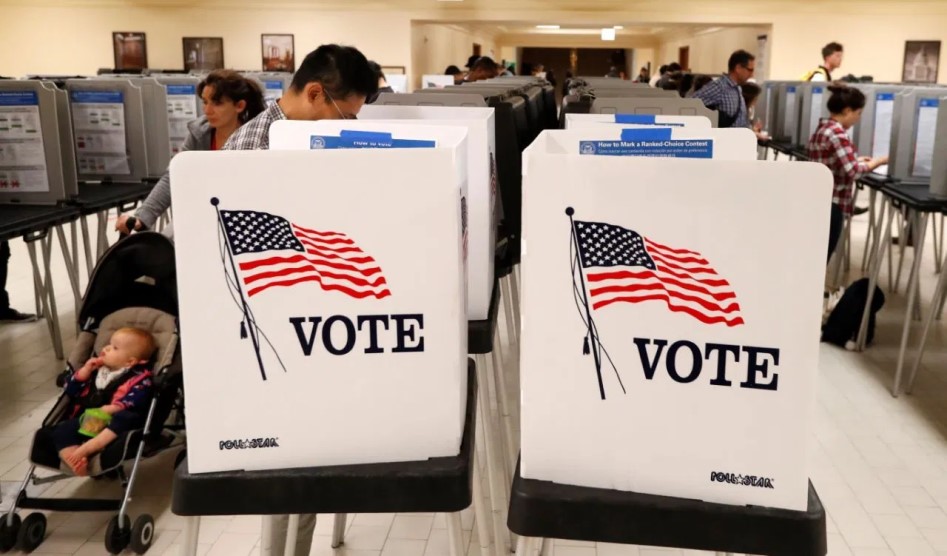The redistricting process has left a sour taste in many Latino and other minority communities across the United States, who expected their population growth over the past decade to translate into political power.
From Georgia and Florida to Arizona, Nevada, and Texas, Hispanic activists have expressed their discontent and frustration at the new electoral maps, which are in the process of being approved or have already received the green light from state legislatures, and which they claim to dilute and weaken the Latino vote.
The most notorious case in Texas, where at least five lawsuits have been filed for unconstitutionality, including one from the federal government that accuses the state of violating the Voting Rights Act, which mandates that all voters have equal opportunities to participate. the electoral processes.
The Administration of President Joe Biden argues in the complaint, filed in early December before a federal court in El Paso, that during the last decade Texas gained four million inhabitants, mostly Hispanics and other minorities, but that the electoral districts they do not reflect that diversity.
HOPE IS FAKING
In Dallas County, one of the Texas towns where the Latino population soared in the last decade (40.8%, according to the 2020 Census), this community did not lose hope that it would finally take over its district and obtain its own political representation.
But history repeated itself and the Republican-controlled Texas Legislature denied them the opportunity even though the numbers from the population count supported their aspirations.
“It happened again: they don’t give us Latinos the opportunity. It’s not fair to me, ” said Henry Martínez Jr, a renowned Dallas activist who chairs the Ledbetter Eagle Ford Community, a non-profit organization that supports the Hispanic community in the area.
According to the Justice Department, this is the third time in three decades that Texas has eliminated “an electoral opportunity for Latinos in the same district, despite court rulings indicating that they have violated the law.”
Now Martinez is left with the only consolation that the courts may find in favor of the lawsuits that have been filed against the new maps. “If we fight the case, maybe we can. We are going to try to do it, but we are going to need all the people to be able to do it, “he said.
For experts on the subject, the new electoral maps that have been drawn in many states with legislatures and governments controlled by the Republican Party have the clear intention of “counteracting the participation” of Latino and African-Americans, who traditionally support the Democratic Party.
“We spent the eighties and nineties trying to empower groups that had been excluded, like Latinos, and now we see that the process is being reversed and trying to use state congresses to redesign districts with the intention of diluting or excluding the Latino vote and disempowering Latinos, ” said Miguel Tinker Salas, professor of Latino Studies at Pomona College, California.
The historian assures that the United States is experiencing a process of “restricting democracy” and considers this situation “a tragedy” for a country that claims to be an example for the rest of the world.
“REPUBLICAN STRATEGY”
For Tinker Salas, it is a clear Republican strategy to ensure victories in the midterm elections of 2022, in which Congress will be at stake, and in the presidential elections of 2024, after the defeat of the now former President Donald Trump in the 2020 elections.
The expert considers it unlikely that the battle in the courts will prosper because during the Trump Administration (2017-2021) many of the judges who will examine the cases of the new electoral districts were appointed.
“The judges are newly appointed by the Trump Administration. It was the other great strategy of (the Republican leader in the Senate) Mitch McConnell and Trump to try to impose a whole great wave of new judges, even when it still seemed to fail in Congress, “he said.
The Republican-controlled General Assembly of Georgia also turned its back on Hispanics in communities where they represent more than 40% of the population, such as the northern cities of Gainesville and Dalton.
“ How they drew the lines is going to make it much more difficult for Latinos. They are going to set us back many years, ” said community leader Michelle Sánchez, a member of the board of directors of GA Familias Unidas, based in Gainesville, and coordinator of Poder Latinx.
The law that makes the new electoral maps official has not yet been enacted by Georgia Governor Brian Kemp, but he already faces several lawsuits for discrimination and for violating the Voting Rights Act.
“ Latinos are being put in districts where we are not the majority when we have certain areas of the district where we are the majority. Every ten years, when the maps change, there are always communities that are marginalized, be it Latino, African American or Asian, “ said Democratic State Representative Pedro Marín.
























































































